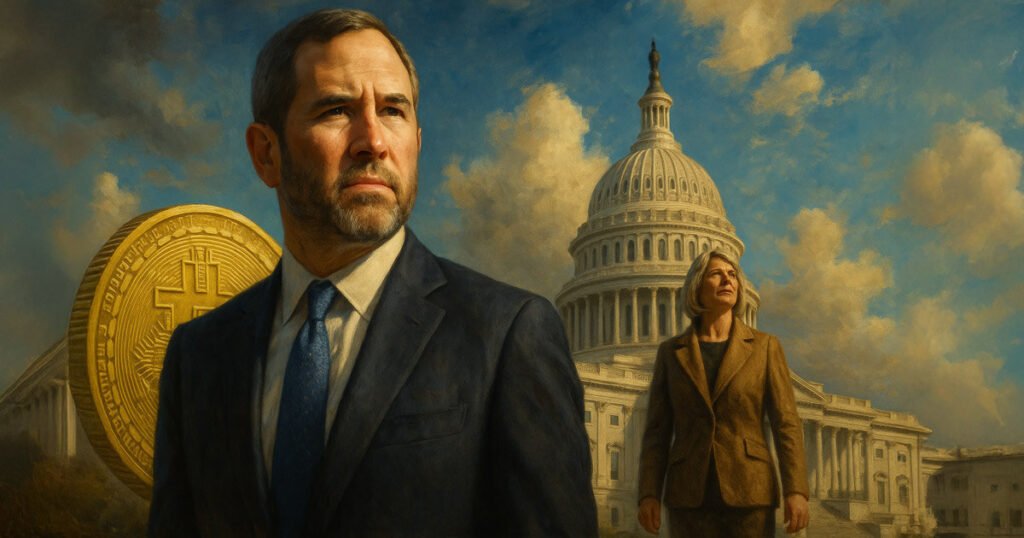Ripple CEO’s Frustration: Canceled Meeting with Senator Lummis Raises Questions
Ripple CEO Brad Garlinghouse recently expressed his discontent after a planned meeting with Senator Cynthia Lummis, an advocate for cryptocurrencies, was unexpectedly canceled. Garlinghouse was in Washington, D.C., on May 19, aiming to engage lawmakers on the pressing need for reasonable regulatory frameworks surrounding stablecoins and the broader crypto market. His disappointment stems not only from the cancellation but also from the lack of an opportunity to reschedule the important discussion.
The Significance of the Meeting
The canceled meeting with Senator Lummis, who chairs the Senate’s Digital Assets Subcommittee, carries significant weight in the ongoing conversation about cryptocurrency regulations in the U.S. Garlinghouse acknowledged Lummis’s positive stance on crypto but expressed a desire for her to reconsider her abrupt decision. In a public post, he invited her to join him for a conversation about making the U.S. a global leader in cryptocurrency, a vision aligned with the goals of the Trump Administration. This highlights the importance of dialogue among influential figures in shaping a conducive environment for cryptocurrency innovation and adoption.
Backlash and Speculation from the Crypto Community
The fallout from this event has ignited speculation within the cryptocurrency community. Many are questioning the reasons behind the senator’s choice to cancel the meeting. While some believe Garlinghouse’s vocalization of frustration was unwarranted, others have levied accusations of favoritism, claiming that Lummis may inherently support Bitcoin over other cryptocurrencies like XRP. Pierre Rochard, CEO of Bitcoin Bond Company, suggested that her decision might be linked to Garlinghouse’s endorsement of Central Bank Digital Currencies (CBDCs), which face strong opposition from many Bitcoin enthusiasts.
Acknowledgment of Conflicts of Interest
Concerns about possible conflicts of interest have also surfaced in response to the meeting’s cancellation. A notable point of discussion emerged when observers noted that Lummis’s son-in-law, Will Cole, has connections to the Bitcoin community and has previously criticized Ripple. This relationship raises questions about the potential influence of personal connections on political decisions and regulatory discussions. Furthermore, Lummis’s financial ties to venture capital firm Andreessen Horowitz (a16z), along with her family’s involvement in Bitcoin, complicate the narrative and suggest that her decisions may not be purely political.
Garlinghouse’s Response and Call for Engagement
In light of these developments, Garlinghouse articulated his concerns regarding the lack of dialogue over the past six years and the apparent barriers to communication with Lummis. He found it troubling that a meeting could be denied without direct engagement from the senator herself. His remarks underscore the necessity for open lines of communication between lawmakers and industry leaders to foster a regulatory environment that can support innovation while addressing public policy concerns.
Looking Ahead: The Future of Crypto Regulations
As discussions around cryptocurrency regulation continue, the importance of collaboration between the crypto industry and lawmakers remains clear. Garlinghouse’s call to Senator Lummis to engage in meaningful dialogue is a crucial step that could lead to a more favorable regulatory landscape. With the crypto community closely watching, the outcome of such engagements could pave the way for creating a robust framework that balances innovation and regulatory oversight, ultimately benefiting both the industry and consumers alike.
In conclusion, as the crypto landscape evolves, the relationship between policymakers and industry leaders will be pivotal in shaping the future of digital assets in the U.S. The recent developments surrounding Garlinghouse and Lummis reveal a pressing need for constructive discussions and transparency in regulatory processes, essential for establishing the U.S. as a leader in the global cryptocurrency movement.


